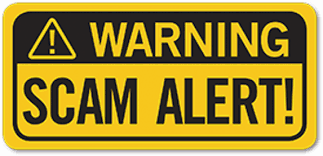KEYNOTE SPEECH – TIKTOK SAFER INTERNET SUMMIT 2025
Minister Solly Malatsi
Cape Town International Convention Centre – 26 March 2025, 10:15 AM
Theme: #SaferTogether Online
Good morning, distinguished guests, members of the TikTok leadership team, fellow public servants, valued content creators, and everyone committed to a safer, smarter digital future.
Platforms like TikTok have significantly transformed the media and creative environment. They've transformed storytelling, empowered creativity, and given voice to those previously unheard.
Today, an ordinary teenager in rural South Africa, armed only with a smartphone, can rival major media houses—reaching millions. Not because of budget or influence, but through authenticity, creativity, and sheer relatability.
This democratization of media has given a voice to those historically silenced. It is no exaggeration to call TikTok the modern-day slingshot David used to bring down Goliath. It has become a powerful tool of empowerment in the hands of our young creators.
But as we embrace this remarkable digital era, we must confront the reality of the digital paradox. While technology brings extraordinary opportunities, it also carries significant risks— cybercrime, misinformation, and the disturbing rise of AI-generated deep fakes.
Globally, we’ve witnessed a surge in AI-generated misinformation, affecting businesses, elections, and public trust. In South Africa, earlier this year, a viral fake video announcing the introduction of a "Grade 13" spread rapidly, causing confusion and unnecessary anxiety.
Even more concerning was the manipulation of content during our recent national elections, directly threatening public trust in our democracy.
In traditional media spaces, there are clear mechanisms for accountability and correction—editorial oversight, ombudsmen, and regulated procedures. Unfortunately, these safeguards often do not exist in the digital space.
Fake news spreads like wildfire, propelled by algorithms optimized for views, likes, and shares, rather than accuracy or truth. The rapid spread of false information can severely erode public trust and damage the foundations of our systems.
When society loses its grip on objective truth, the very pillars of democracy begin to shake. Without trust in credible information, citizens become vulnerable to manipulation, polarization, and societal division. It is essential, therefore, to strengthen a ccountability and transparency in the digital sphere, ensuring truth remains our foundation.
Research shows only 21% of South Africans can reliably identify deepfake images and videos. Clearly, we face an urgent task to educate and equip our people to navigate these new digital threats.
This is precisely why our National AI Policy Framework seeks not only to set ethical standards but to establish clear, enforceable legislation that keeps pace with technological innovation.
Drawing inspiration from pioneering global benchmarks such as the European Union’s AI Act, our framework outlines concrete steps toward transparency, accountability, and fairness in AI development and deployment.
Our forthcoming White Paper on Audio-Visual Content is another pivotal step toward modernizing our media regulations. It emphasizes aligning online content standards with those of traditional media—mandating accountability, promoting transparency, and protecting our citizens from misinformation.
Our existing Protection of Personal Information Act (POPIA) also plays a vital role, safeguarding citizens’ privacy and aligning South Africa with global best practices.
However, effective monitoring and implementation of these standards require continued collaboration between the public and private sectors. And it is why events like today are so crucial.
I must acknowledge and commend TikTok’s proactive engagement on safety issues, particularly your #SaferTogether campaign in collaboration with the African Union. This shows genuine commitment to online safety. Yet, there is much more we can—and must—achieve together.
TikTok’s impact in South Africa has already been remarkable, demonstrating the incredible power of the platform to transform lives and careers.
Dan Corder started with political commentary on TikTok, building an audience that propelled him into mainstream media, where he now hosts his own current affairs show on eNCA.
Liam Jacobs leveraged his activism and community engagement on TikTok into significant political influence. From a voice online, he successfully transitioned to becoming a voice within the highest decision-making body in our country by becoming a Member of Parliament
And then there is Lasizwe Dambuza, whose comedic brilliance turned everyday South African experiences into viral content. From creating short humorous skits on TikTok, he has grown into a celebrated media personality, hosting television programs and securing influential brand partnerships.
These inspiring examples illustrate the transformative potential of platforms like TikTok, empowering ordinary individuals to extraordinary heights. However, we must ensure that these stories become the norm rather than the exception.
Yet, despite these incredible successes, a troubling inequity remains. TikTok’s Creator Fund empowers creators in the US, Europe, and parts of Asia, allowing them to monetize their content directly. However, South African and African creators continue to be excluded entirely from this economic opportunity.
South Africa proudly hosts one of Africa’s largest and most dynamic TikTok communities — with over 17 million active users. Our talented creators regularly ignite global viral trends, showcasing a creativity and cultural influence admired worldwide.
Yet they see no direct financial reward from TikTok itself. This not only limits economic opportunity, it also sends the wrong message: that African creativity has reach, but not value.
We fully recognize the complexities involved—payment infrastructures, advertising ecosystems, and market dynamics. But complexity can no longer justify exclusion. If we genuinely believe in an inclusive and equitable global digital economy, we must be deliberate about removing these structural barriers.
Let's bring the Creator Fund to South Africa. Let's ensure our exceptional creators receive the recognition and fair compensation they have earned.
In closing, I want to sincerely thank TikTok for organizing this important event. Your continued investment in initiatives such as these highlights the profound impact of collaboration between the private and public sectors.
Together, we are reinforcing our commitment to building a safer and more secure digital environment.
Let's keep working together to protect, empower, and uplift our digital communities, ensuring the internet remains a safe space of opportunity for everyone.
Thank you.
Download Document here: Minister Malatsi’s Keynote Speech at the TikTok Safer Internet Summit 2025



